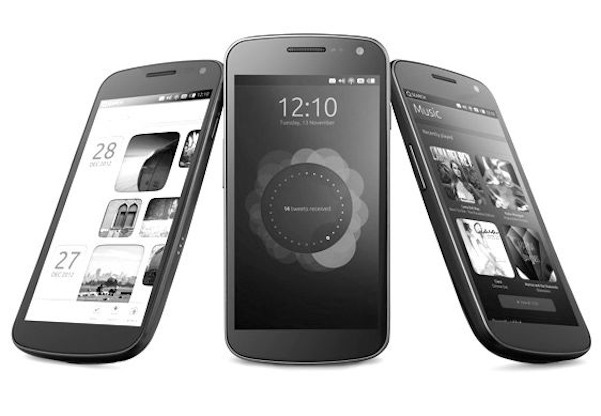Ubuntu vs Android Tablets, Smartphones: Canonical's Secret Weapon
Apple iOS and Google Android remain the dominant operating systems for smartphones and tablets. But alternatives like Canonical's Ubuntu and Firefox OS are hoping to disrupt the mobile market -- despite the stark reality that even Microsoft and Blackberry are having trouble in the market.
May 7, 2013

Apple iOS and Google Android remain the dominant operating systems for smartphones and tablets. But alternatives like Canonical’s Ubuntu and Firefox OS are hoping to disrupt the mobile market — despite the stark reality that even Microsoft and Blackberry are having trouble gaining ground. So how do upstarts like Ubuntu hope to grab market share?
Today’s Wall Street Journal offers a compelling look at the debate. The stark market reality: Many vendors are striving to become a viable third mobile platform vs. iOS and Android — which command nearly 88 percent of the smartphone market, according to IDC figures for 2012. The Journal notes that:
Huawei Technologies, LG Electronics and ZTE Corp. will ship phones with Mozilla Firefox OS later this year.
Samsung and Intel are working on a system, called Tizen, that will ship on a mobile phone in Q3.
Canonical is working on a smartphone version of Ubuntu that will ship in early 2014.
Jolla, a Finland startup, will launch its own Sailfish-based smartphone later this year.
The One to Watch
Of that list, The VAR Guy is most intrigued by Canonical. The reason: Ubuntu has strong mind share and reasonable market share in the PC desktop market. Many university students, corporate programmers and hackers (the good kind) use Ubuntu for their day-to-day computing needs. Plus, Ubuntu seems to be catching momentum in the server market — particularly when it comes to cloud computing.
Kyle MacDonald, VP of cloud at Canonical, told The VAR Guy that cloud computing is now Canonical’s fastest growing business. But Canonical Chairman Mark Shuttleworth told our resident blogger that the mobile and cloud waves are equally important to Canonical.
Familiar Story: One Code Base
Canonical’s strategy is simple but compelling: Give software developers a single code base and a common set of APIs (application programming interfaces) upon which to build their apps and applications — whether their apps are mobile, desktop, server or cloud.
As Canonical Product Manager Richard Collins told The Wall Street Journal: “We want to offer a viable, non-fragmented alternative to Android where both mobile operators and OEMs have a greater deal of flexibility for both service and unser interface customization.”
In other words, Canonical is hoping to profit from Android fragmentation. In some cases, software developers and device makers are having a difficult time making sure their hardware and software works with all the different Android flavors in the market. Similarly, you can imagine VARs and IT consultants struggling to offer support (mobile application management, mobile device management) for all those Android flavors.
In stark contrast, Canonical is vowing to make sure Ubuntu remains a single code base.
PC Makers and Smartphones?
That’s a compelling strategy. But Ubuntu is going to need a few lucky breaks to gain market share on smartphones and tablets. Among the potential lucky breaks: PC makers are very familiar with Ubuntu. Michael Dell has personally run the operating system from time to time, and Dell has supported Ubuntu on various mobile, desktop and server configurations. The story is somewhat similar at HP and Lenovo; both companies offer varying degrees of Ubuntu support.
Generally speaking, Dell has been retreating from the consumer market toward corporate data centers. But if Michael Dell wants to make another run at the smartphone market you can bet Ubuntu will be on his shortlist of options. The same goes for HP, where that company is already introducing Google Chromebooks as an alternative to Windows 8 devices. Ditto for Lenovo, which also keeps its options open in the software market.
The VAR Guy isn’t predicting victory for Ubuntu on smartphones. But Canonical’s strategy is worth watching.
About the Author(s)
You May Also Like


